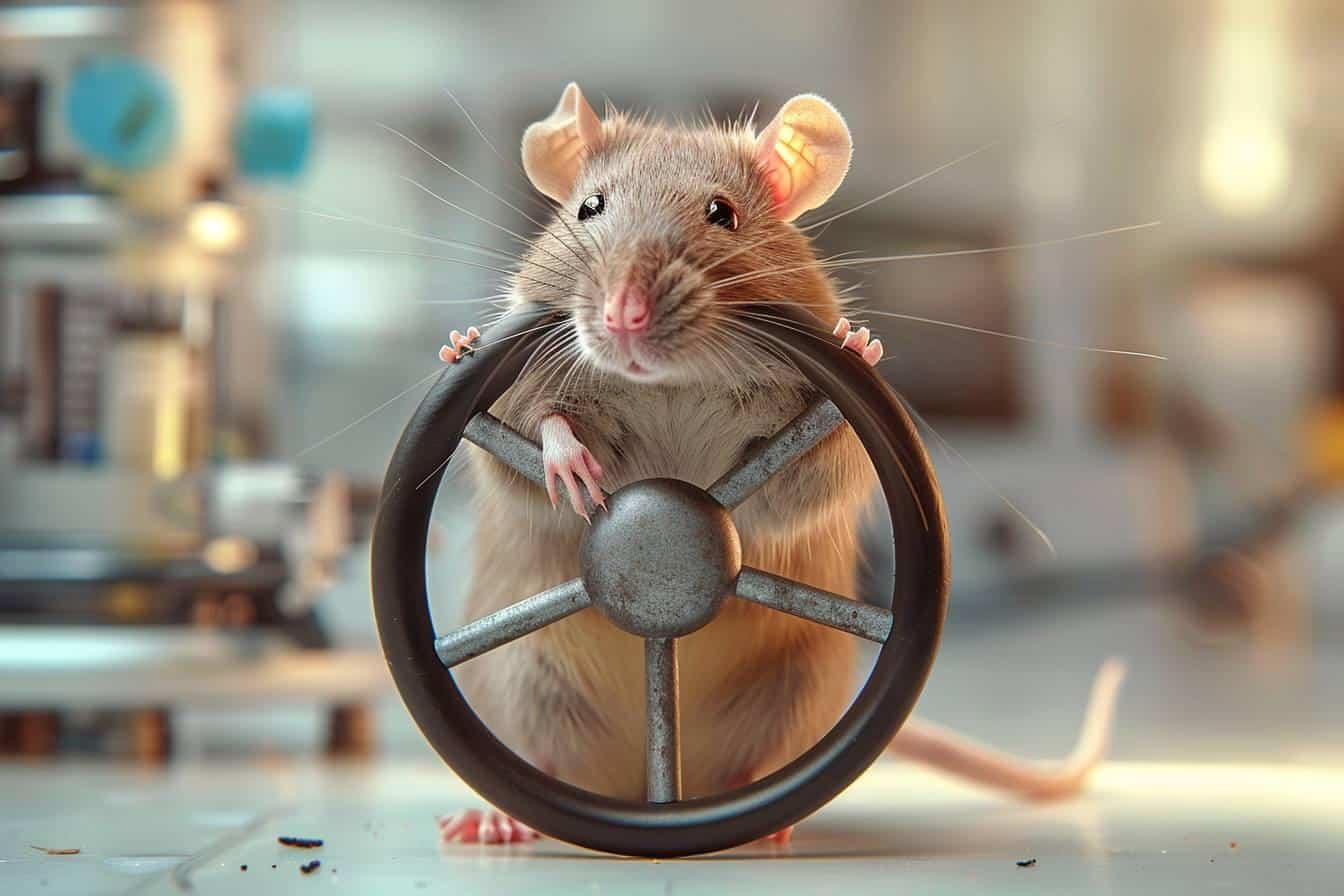Astonishment sets in when researchers observe rats taking the wheel of miniature cars. This scientific initiative transcends simple experimentation, revealing fascinating parallels between human behavior and that of rodents. *The reactions of rats to driving* shed light on crucial questions regarding the *cognitive nature* of these often overlooked animals. In-depth research examines how these rodents express their emotions and choose their leisure activities, showing that some truly develop a fondness for this activity. *The enthusiasm they display*, faced with this unprecedented experience, raises questions about animals’ ability to feel pleasure in a manner similar to humans.
Key Information
Scientists have taught rats to drive small electric cars.
This initiative allows for the study of similarities between human cognition and that of rodents.
Studies reveal that some rats actually enjoy driving.
This project is led by Professor Kelly Lambert at the University of Richmond.
Rats show signs of pleasure and enthusiasm when they take the wheel.
The research focuses on neuroplasticity and the link between positive emotions and behavior.
Driving rats may exhibit lower levels of stress and better emotional resilience.
Rats at the Wheel: A Fascinating Study #
Scientists from the University of Richmond in Virginia have undertaken the task of teaching rats how to drive. This initiative aims to better understand human behaviors through observations related to neuroplasticity and mental health. By using small electric cars, researchers have established an intriguing connection between the emotions of rodents and their interactions with stimulating stimuli.
An Innovative Methodology #
Dr. Kelly Lambert, a professor of behavioral neuroscience, has devoted six years to this study. Rats require approximately three weekly training sessions of ten minutes each for a month to learn how to maneuver the vehicle. This learning process is fascinating, as it demonstrates their ability to integrate complex cognitive tasks, similar to humans.
À lire Discover the smallest river in France at the heart of one of Normandy’s gems
The rats have shown signs of excitement at the prospect of driving, increasing their engagement compared to other types of activities. Lambert noted that they exhibit a natural interest in the driving experience, indicating that they appreciate this positive interaction.
A Reflection of Human Behavior #
The similarities between human brains and those of rodents are undeniable. Neuroscientists have observed that both types of brains share identical structures and chemistries, contributing to similar emotional responses. These findings illuminate not only the complexity of rats’ cognition but also how these rodents can enhance the understanding of human mental illnesses.
Anticipation and Reward: The Key to Happiness #
Lambert emphasized that anticipation plays a crucial role in the pleasure experienced by animals. By choosing to drive to a “Fruit Loop tree” filled with treats, rats display a clear desire to prolong this anticipation. Studies have shown that the anticipation of rewards increases levels of dopamine, a neurotransmitter often associated with happiness.
It is telling that two out of the three rodents would prefer to drive rather than walk to their treat destination. This preference demonstrates not only an emotional commitment but also an evaluative capacity. Prolonging anticipation before reaching the reward promotes the emotional well-being of the rats.
À lire the United States issues a travel warning for Pakistan following a drone attack in India
The Study of Positive Emotions #
Researchers have noted a lack of publications on positive emotions in animals, a gap that Lambert’s team seeks to fill. The recent emphasis on emotions such as joy and enthusiasm reflects a shift in the priorities of neuroscience research. There is no doubt that exploring these positive emotions could enrich the understanding of mental health and well-being in both rats and humans.
Future Implications of Research #
The acquisition of skills such as driving by rats opens the door to new perspectives on animal behavior. Through the observation of these rodents, scientists hope to gain insights applicable to human cognition. The results of this study could have repercussions on how psychological and behavioral treatments are designed. Reflecting on how simple rodents interpret pleasure and reward only serves to enrich the field of knowledge regarding human behavior.


